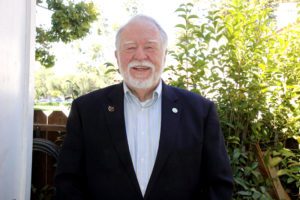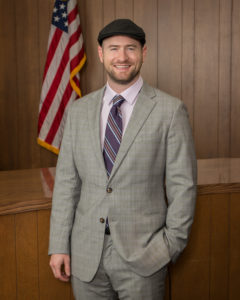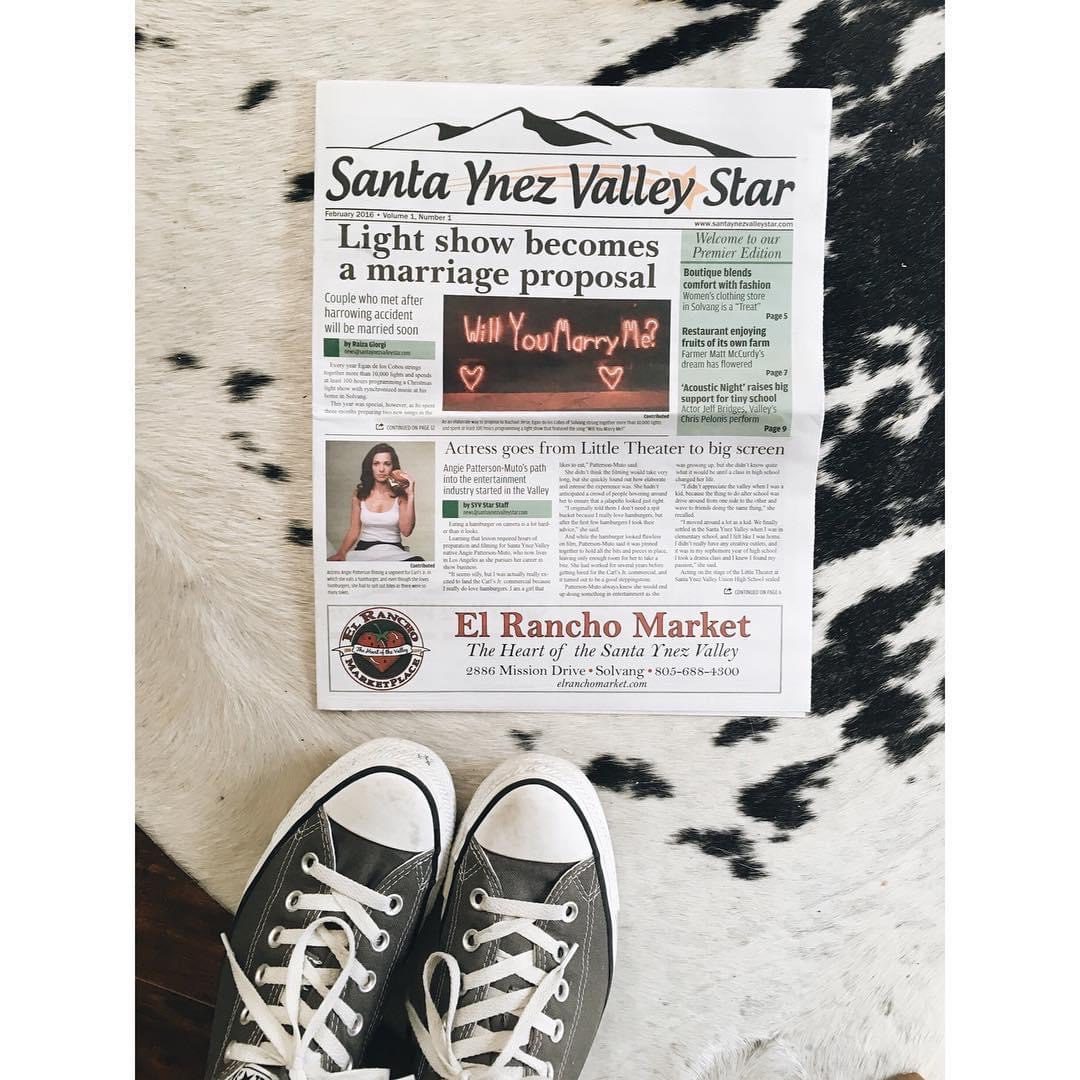1. Why are you a candidate? What issues are important to you?
2. How does the Mayor’s role differ from that of other City Council members, and which of those differences are most important to the city’s residents?
3. Should Solvang diversify its economy to make it less dependent on tourism? If so, how? If not, what is the City Council’s role in supporting the tourism economy?
4. Future annexations to Solvang have been a topic recently. Should Solvang expand its borders? If so, by how much? And how should that growth be accomplished?
 Jim Richardson
Jim Richardson
Retired from computer industry; current mayor of Solvang
Question 1: As in the last thirteen years, I want to continue to be a part of the successes of the city I love and live in.
Tourism is the most important issue to me. Tourism is the city’s life blood that provides approximately 60 percent of the revenues we need to sustain the lifestyle that makes this Danish inspired community the wonderful place it is.
Other issues, however, are controlling expenses, water and sewer rates, infrastructure maintenance and improvements, parks, employee retirement plans, and supporting social services such as the senior center, Solvang School music and arts program, the museums, People Helping People, Veggie Rescue, Theaterfest and others.
We’ve been successful at all of this and still have a budget surplus every year, of which 50 percent goes into reserves for future expenses and emergencies.
Question 2: The mayor is a member of the City Council and has the same power – one vote. The mayor’s responsibilities are chairing council meetings, following the agenda and representing the city in an official capacity. Those responsibilities are spelled out in city ordinances. The mayor will confer with the city manager in setting the council meeting agenda. The mayor and other council members may confer with senior city staff, but may not direct their activities. That is a function of the city manager.
I believe that council meetings should be run with a quiet decorum, with respect to those on the dais, and to all who appear before the council. It must be remembered that council meetings are business meetings and should be conducted as such.
Question 3: A city with a single industry is subject to be a failing city. That being said, it doesn’t mean tourism will cause our city to die, there’ll always be tourists, but the public can be fickle. The council understands that, I believe, because we have had an economic development committee to study ways to insure against a downturn in our economy. We haven’t arrived at a total solution, but we keep meeting and are continually looking for a solid source of revenue; a clean industry, perhaps.
The council’s role in supporting tourism is to insure proper funding of the visitors bureau and Chamber of Commerce. They could also be ambassadors, inviting people to Solvang, as they travel. Council members also join in the city’s many celebrations: Yulefest, Danish Days, 4th of July, car shows, and many social and charitable fundraisers. I believe that shows the spirit of our city to the visitors.
Question 4: I don’t know if we should expand the city limits. We’ve had a sturdy that didn’t give me the answers I was hoping for — a yes or a no. Are there advantages to expanding? Yes, for example, how can we bring into town another industrial base without more land? But, if we expand, the state will get involved in determining our housing stock and other infrastructure requirements. We live in a city surrounded by rural farmland, it’s beautiful, but how can we keep it that way if we can’t control how that land is being developed? How long can we protect our rural community with the population increases that we can see in the future? Are we going to let the county make that decision for us?
 Ryan Toussaint
Ryan Toussaint
Technology business owner; Solvang City Council member
Question 1: I built an information technology business from scratch and led a team of 12 employees through the last recession. We provided competitive, high quality services to hundreds of customers throughout the area. I will use my management skills to help the council navigate through issues such as water, traffic, strategic partnerships, and updating an aging infrastructure. In my first term, I have proven that I am fiscally responsible to the constituents of the City of Solvang. I was able to stop significant water rate increases by auditing the budget and eliminating unwarranted expenses. I will continue to fight for the taxpayers of Solvang while improving city infrastructure to improve services for residents and businesses.
Question 2: The most important thing a mayor can do is lead the council to a consensus and guide the council towards establishing the long-term goals of the City. A strong, energetic mayor can help cut taxes and improve city services. Future costly challenges for Solvang include a new sewer treatment plant, storm water management and reducing our unfunded liabilities. I kept the water rates down last year and will fight to prevent other tax increases. We need to restructure city policies from the ground up to make our permitting processes friendlier to both residents and businesses. This is important as our residents need to be encouraged to improve their homes and our businesses need to keep up with changes in tourism demographics and needs.
Question 3: Yes, we need to adapt to the changing retail and tenant mix, as well as customer social habits — people are buying differently today. In terms of supporting the economy, we need to provide a strong infrastructure for small businesses, which provide jobs. We need to make sure we don’t have outdated or unnecessary regulations that stop small businesses from being able to thrive and invest more in their infrastructure and customer service. I’m ready to work hard at revamping our Planning Department and permitting process to create a more transparent, efficient and customer service-oriented approach. This will benefit both residents’ remodels and local business ventures. We need to focus on creating a strong local economy to offset significant City expenses instead of taxing our residents.
Question 4: My biggest concern with the recent annexation attempt was that it seemed to be the cart before the horse. The study was lacking direction with no clear vision plan. I feel this creates fear of a hidden agenda that doesn’t benefit the residents of the Valley. The council needs to develop a strategic plan to fiscally pay for the upcoming costs before taking on annexation. We can’t allow our structural costs to keep increasing and putting the burden on the residents. There is no doubt that there could be positive benefits in annexation by keeping local control and preventing improper zoning by the county and/or state. And we certainly wouldn’t want to end up with development that benefits the County while the City is left to try to mitigate the damages to the residents and businesses. I’m open to analyzing our options in greater detail, but we need a vision plan with community engagement. This gives the community of Solvang ownership over its future.





